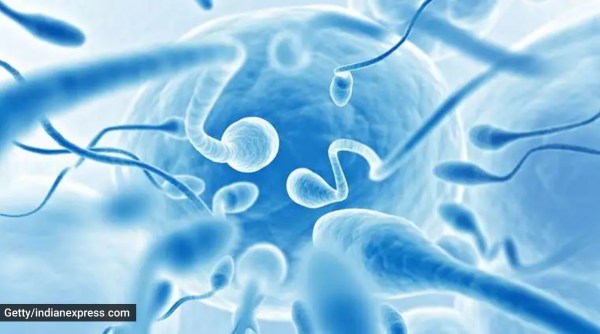How age catches up with men as they turn 40: ‘While they don’t experience a monthly cycle or menopause like women…’
While the concept of a biological clock is mainly linked to women and their fertility, according to the research, men also experience “age-related changes” that can affect their reproductive health.
“In men, sperm quality is impacted as they age. Several studies indicate that this happens due to decreased motility and increased DNA fragmentation once they turn 40,” said Dr Nisha Pansare, fertility consultant, Nova IVF Fertility, Pune.

Dr Ridhi Bajaj, associate consultant, CK Birla Hospital(R), Delhi also explained that while men don’t experience a monthly cycle or menopause like women, their fertility and hormone levels can decline with age, impacting sperm quality, quantity, and overall reproductive health. “In men, their testosterone levels typically decline around the early 40s. This gradual decrease can affect libido, energy levels, mood, and muscle mass. Additionally, sperm motility and morphology also decline with age, posing a higher risk of infertility and potential genetic abnormalities,” said Dr Bajaj.
Consultant neurologist Dr Sudhir Kumar, Apollo Hospitals, Hyderabad said the most obvious effects are a decrease in muscle mass and bone mineral density. “The drop in testosterone levels is not as steep as the drop in estrogen levels that happen in women after menopause. A drop in testosterone levels in men is associated with an increased risk of infertility and higher chances of birth defects in babies,” said Dr Kumar.
 Let’s understand more about sperm health (Source: Getty Images/Thinkstock)
Let’s understand more about sperm health (Source: Getty Images/Thinkstock)
The risk of several diseases such as erectile dysfunction, obesity, metabolic syndrome, diabetes, and cardiovascular diseases is higher in men with lower testosterone levels. According to Dr Kumar, lower testosterone is also associated with a higher risk of premature death.
“In one study, men with low testosterone had a mortality rate of 35 per cent during the eight-year study period compared with a mortality rate of only 20 percent among men with normal testosterone levels. This trend persisted even after controlling for all reasonable variables in the study population. The most common available treatment for low testosterone levels (hypogonadism) is testosterone replacement therapy,” said Dr Kumar.
However, according to Dr Pansare, while “men don’t have a strict biological clock and deadline like women”, their ability to conceive healthy offspring can be “affected due to advanced age. Moreover, older fathers may face difficulties while raising children. Hence, men should also take utmost care of their reproductive health.”
It is essential to speak to a fertility consultant and clear all your doubts. “Try to ensure you follow a well-balanced lifestyle inclusive of a nutritious diet, exercise, avoiding smoking and alcohol, and prioritising sleep. Men should also actively discuss family planning with their fertility consultant,” said Dr Pansare.
📣 For more lifestyle news, click here to join our WhatsApp Channel and also follow us on Instagram
Disclaimer: The copyright of this article belongs to the original author. Reposting this article is solely for the purpose of information dissemination and does not constitute any investment advice. If there is any infringement, please contact us immediately. We will make corrections or deletions as necessary. Thank you.
